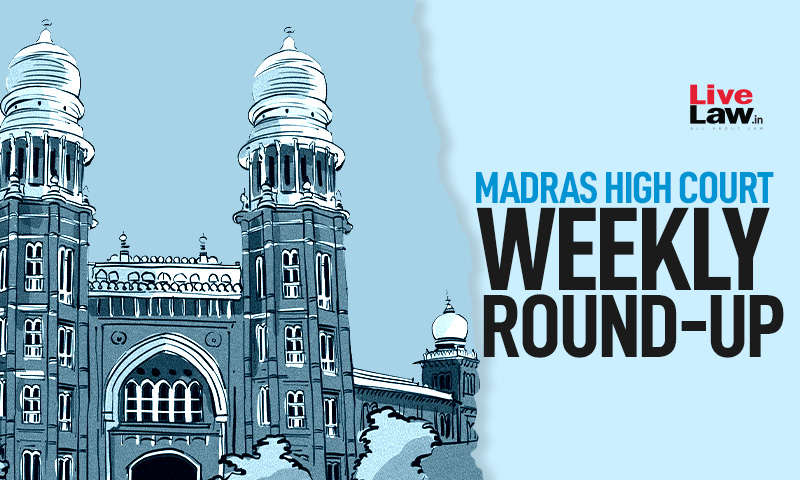Madras High Court Weekly Round-Up: March 18 to March 24, 2024
Upasana Sajeev
25 March 2024 11:13 AM IST

Next Story
25 March 2024 11:13 AM IST
A weekly round-up of important cases from the Madras High Court Citations: 2024 LiveLaw (Mad) 115 To 2024 LiveLaw (Mad) 130 NOMINAL INDEX Arulmigu Sundara Varadharaja Perumal Temple v Principal Secretary and Commissioner of Land Administration, 2024 LiveLaw (Mad) 115 K.N.Subramaniam Versus PCIT, 2024 LiveLaw (Mad) 116 Mohammed Ashik v Inspector of Police, 2024 LiveLaw...
